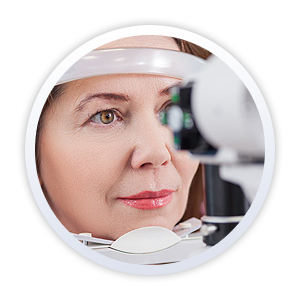Approximately 25 million Americans have cataracts, which causes cloudy, blurry or dim vision and often develops with advancing age. This June, Carolina Ophthalmology, PA joins the American Academy of Ophthalmology in observing Cataract Awareness Month by sharing three things everyone should know about the condition and its treatment.
As everyone grows older, the lenses of their eyes thicken and become cloudier. Eventually, they may find it more difficult to read street signs. Colors may seem dull. These symptoms may signal cataracts, which affect about 70 percent of people by age 75. Fortunately, cataracts can be corrected with surgery. Ophthalmologists, physicians who specialize in medical and surgical eye care, perform around three million cataract surgeries each year to restore vision to those patients. Get an idea of what someone with cataracts might experience with this cataract vision simulator. The following are facts people should know about the condition.
- Age isn’t the only risk factor for cataracts. Though most everyone will develop cataracts with age, recent studies show that lifestyle and behavior can influence when and how severely you develop cataracts. Diabetes, extensive exposure to sunlight, smoking, obesity, high blood pressure and certain ethnicities have all been linked to increased risk of cataracts. Eye injuries, prior eye surgery and long-term use of steroid medication can also result in cataracts. If you have any of these or other risk factors, talk to an ophthalmologist.
- Cataracts cannot be prevented, but you can lower your risk. Wearing UV-blocking sunglasses and brimmed hats when outside can help. Several studies suggest that eating more vitamin C-rich foods may delay how fast cataracts form. Also, avoiding cigarettes has been shown to decrease the risk of cataract development.
- Surgery may help improve more than just your vision. During the procedure, the natural clouded lens is replaced with an artificial lens called an intraocular lens, which should improve your vision significantly. Patients have a variety of lenses to choose from, each with different benefits. Studies have shown that cataract surgery can improve quality of life and reduce the risk of falling. If cataracts are interfering with your ability to see well, consider asking your ophthalmologist about cataract surgery.
To learn more ways to keep your eyes healthy, visit our patient education library.




